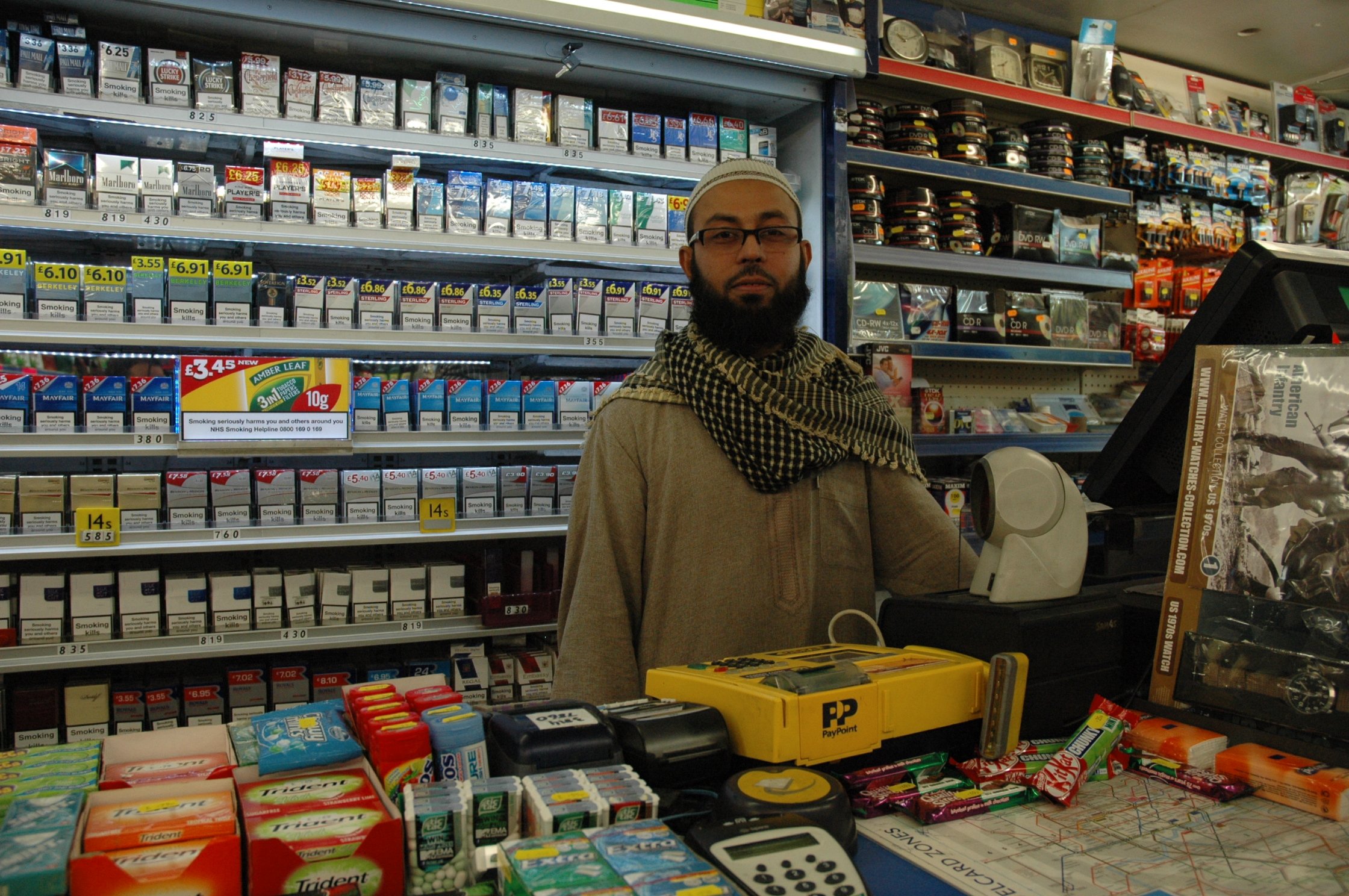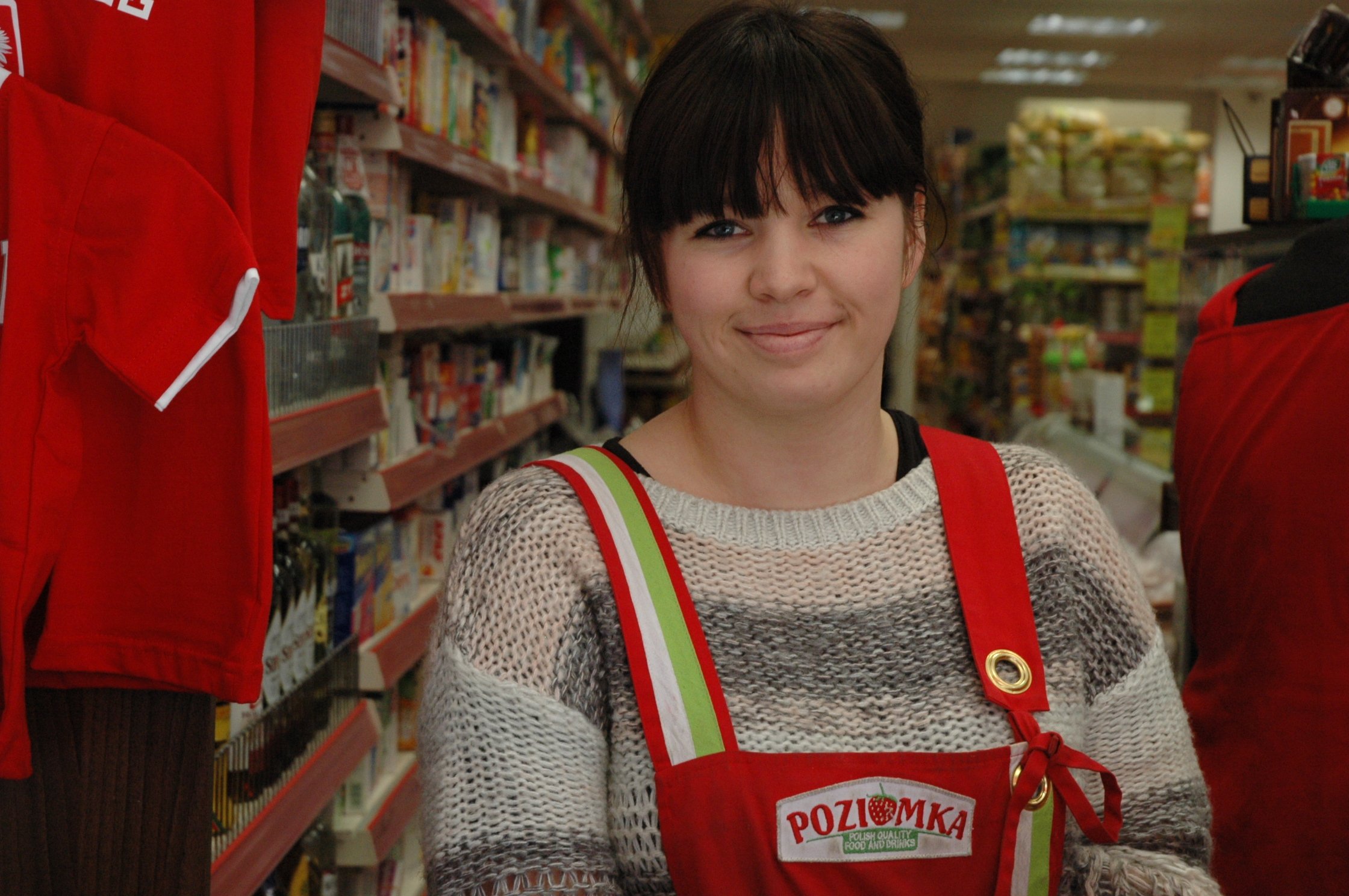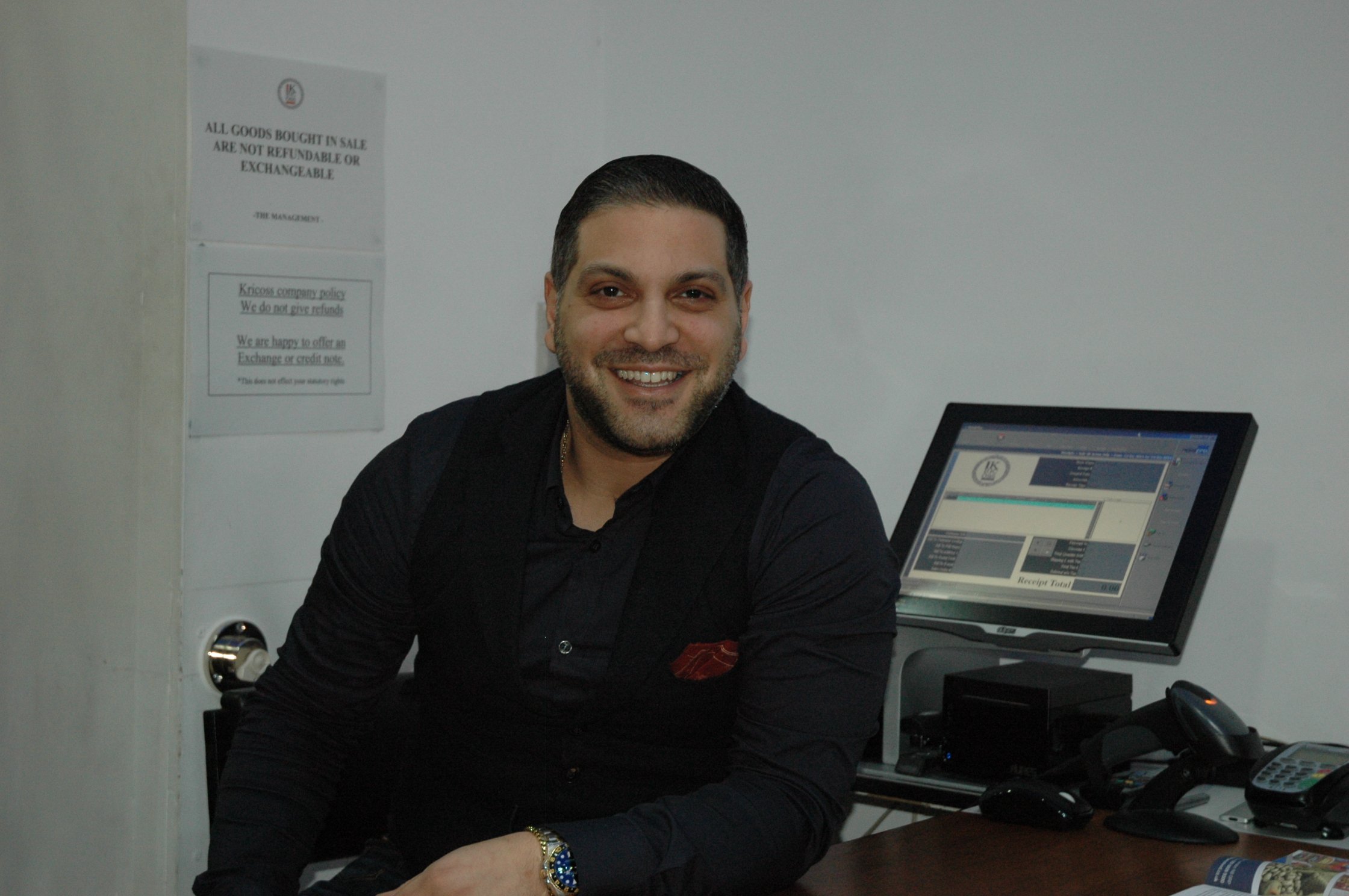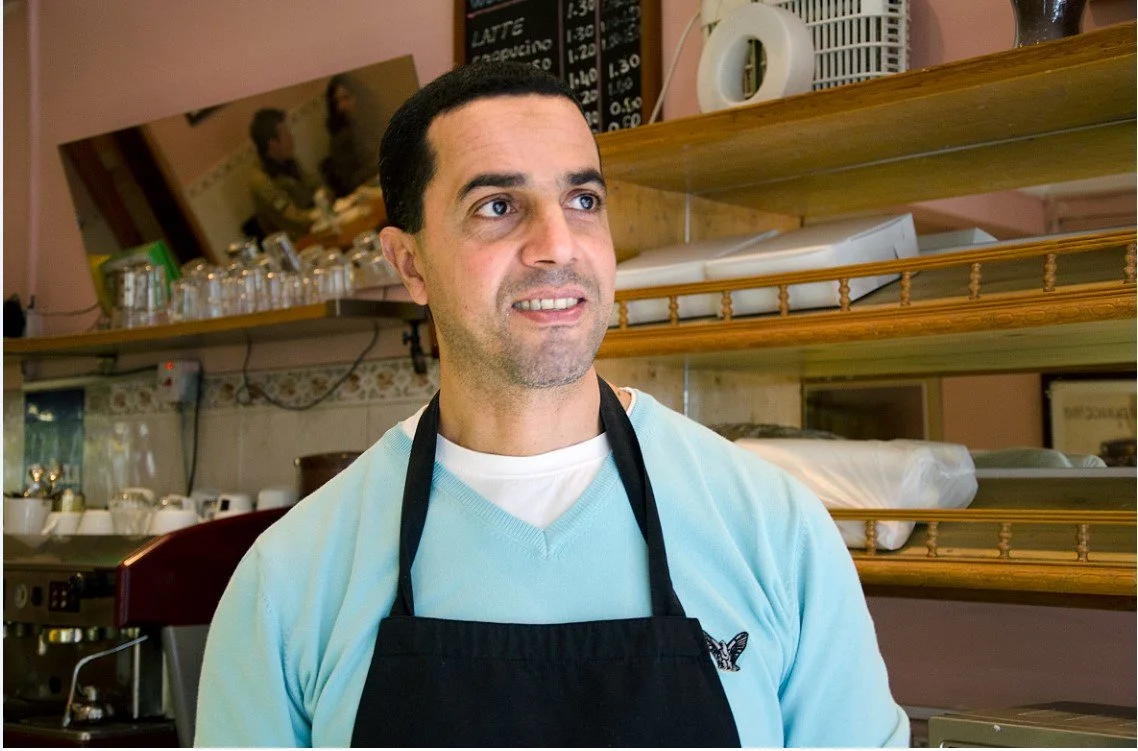The many languages of Harringay traders
According to the Haringey Council, 67.1% of the Haringey population are from a BME group or Other White ethnic groups compared to 60.7% in London. Around 16.5% of residents in Haringey are from Black ethnic groups and one in ten are Asian (10.3%).
30% of Haringey residents do not speak English as their main language. This is the 6th highest rate in London and is above the statistical neighbour and London averages. Of those whose main language is not English in Haringey, one in four (24%) either do not speak English well or do not speak it at all. This is the third largest proportion of all London boroughs, and is above the statistical neighbour and London levels.
As a host to peoples, cuisines and cultures from around the world, Harringay is also a neighbourhood where numerous languages are spoken on a daily basis. Different sources suggest the number of languages Spoken in Haringey is approximately 200. More specifically, the number of languages spoken in schools is 130 with the most common ones being Turkish, Somali, Akan, French, Polish and Bengali. Below, you’ll find a snapshot of the variety of languages present in Harringay. As the most common means of communication, language brings with it culture, assumptions, history, habits and mindsets…
Through the few individuals below, a short recognition of the many worlds that exist in Haringey is possible.
Mihaela Apavaloaie
I am from Romania.. I have my daughter with me, so am planning on staying here for a while. I do live and work in Harringay and really enjoy the area. Although I had no English before I came here, I have been learning English since the day I arrived. Although I live with Romanians and have more Romanians as my neighbours, I find that I speak English the most throughout my day.
Romanian – Interestingly, Romanian is the only Romance language spoken in Eastern Europe, sharing its roots with other Romance languages that the world is familiar with, such as French, Spanish, Portuguese and or Italian. The word Romanian is remnant of the Romans that had taken control the region roughly where we call Romania now and parts of its neighbours. Today, approximately 24 million people speak Romanian.
Ahmed
I am Ahmed. Although I was born here, my heritage is Somali. I live elsewhere however, I work in Harringay and love the neighbourhood. I am very comfortable with English since it is my first language. However, I learned Somali as a second language at home, since my parents did not want the language to die out in the family. I tend to use predominantly English during my life. However, I try to speak to my younger siblings in Somali, since they prefer English and are prone to forgetting Somali. Nonetheless, I don’t blame them, since Somali is much more difficult to learn compared to English.
Somali – Spoken by roughly 10 to 16 million speakers in the world, Somali is a member of Cushitic branch of the Afro-Asiatic language family. Most Somali speakers are located in Somali, Ethiopia, Kenya, Djibouti. What is interesting about Somali is that it can be written in a number of scripts; Arabic based Waddad writing, and the Latin based Borama, Osmanya and Kaddare alphabets.
Dobir
I am Bengali and I moved to London with my parents 25 years ago. I used to live around here but moved to Tottenham. Although I’ve been working in this same shop on Green Lanes for the past 20 years, I moved away because recently I got married and needed to move out of my parents’ house. I use English and Urdu in my daily communications. Since English is much easier than Urdu, I see my children and wife preferring to speak English. However, my parents are still more comfortable speaking their mother tongue. I try to speak to my children in Bengali so that they are also aware of their heritage.
Bengali – Predominantly used in Bangladesh but also in India, Bengali is spoken by around 210 million people in the world. Bengali is a part of the Indo-European language family, more specifically the Indo-Aryan group.
Joanna Wroniecka
I am Polish and have moved to London two years ago. I was living in Edinburgh before that. Although I had learned English in Poland before I came to the UK, after I arrived I still went to a language school for three months. I can now say I am at an intermediate level of English. Although I think English was easy to learn in general, I found that it had some difficult vocabulary. I live with my brothers and speak to them in Polish of course. Yet, I find that I speak English more at the shop due to the international make up of the customers. Aside from Polish, I can also understand Russian and Ukrainain since the languages are also similar.
Polish – The 40 million speakers of Polish are mainly in Poland, however are also present in Lithuania, Belarus and Ukraine. Polish belongs to the West Slavonic group of the Indo-European languages, which also includes the Czech and Slovak languages, making it easier for the speakers of each language to understand each other.
Madeecha Ahmed
Although my mother language is English, I have learned Punjabi as my second language. I speak a mixture of Punjabi and English with my family. I tend to speak Punjabi to the older generations, and English to the younger ones in the family. I thought Punjabi was easy to learn, and saw that it was similar to Hindi and Urdu.
Punjabi – An Indo Aryan language, Punjabi is spoken in India’s Punjab state as well as Pakistan’s Punjab province. Although spoken similarly in both areas, Punjabi is written differently in Pakistan and India. In the latter, the script used is Gurmukhi, written from left to write. However, written in the opposite direction, it is the Urdu script that is used to write Punjabi in Pakistan.
Andreas Krikos
I am Greek Cypriot and I have been on Green Lanes since 1981. I am bilingual, speaking Greek with my family and mostly English in my business life. I used to speak more Greek, however throughout the years English has become more and more useful, especially as the Greeks have started to move out of Green Lanes to northern areas.
Greek – Greek has the oldest documented history amongst the Indo-European languages. With a history of 34 centuries, the language has transformed resulting in the existence of Ancient Greek and Modern Greek categories.
Toufik S.
I came to London in 1990 from Algeria however I have been in Green Lanes since 2006. I speak Arabic with my family, but more English in my shop. I like Haringey and have no plans of moving away.
Arabic – As a southern central Semitic language, Arabic is spoken mostly in Middle East and North Africa. As the language of the Quran, it is known by many more Muslims around the world. Arabic is a language where the Semitic word structure is the most developed, with the words’ roots structured into their three consonants. In the modern day, Arabic has manifested in different accents throughout the Middle East and North Africa, with variations in the Levant, Iraq, the Gulf region and North Africa.
Xiao Zhen Chen
I came from China to London in 2007, and to Haringey in 2011. I am from Shanghai and speak Mandarin with my family. I think English is a difficult language to learn, so I go often to the school library in Wood Green to study English. I used to consider my English pre-intermediate, however I feel I have improved in the recent years. I do enjoy living in Harringay, although I sense that it can be unsafe at times.
Chinese - As part of the Sino-Tibetan language family, the Chinese languages are also called Sinitic languages. Although Modern Standard Chinese is the Mandarin dialect, Chinese has manifested in various forms. Lastly, it must be said that more people speak Chinese as their mother language, than any other language in the world. Although written with the same characters and Chinese actually incorporates Mandarin, Wu, Min, Gan, Hakka, Xiang and Cantonese.








